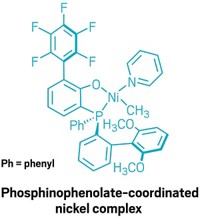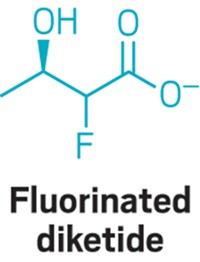Advertisement
Grab your lab coat. Let's get started
Welcome!
Welcome!
Create an account below to get 6 C&EN articles per month, receive newsletters and more - all free.
It seems this is your first time logging in online. Please enter the following information to continue.
As an ACS member you automatically get access to this site. All we need is few more details to create your reading experience.
Not you? Sign in with a different account.
Not you? Sign in with a different account.
ERROR 1
ERROR 1
ERROR 2
ERROR 2
ERROR 2
ERROR 2
ERROR 2
Password and Confirm password must match.
If you have an ACS member number, please enter it here so we can link this account to your membership. (optional)
ERROR 2
ACS values your privacy. By submitting your information, you are gaining access to C&EN and subscribing to our weekly newsletter. We use the information you provide to make your reading experience better, and we will never sell your data to third party members.
Materials
Polyureas That Love To Break Down
Bulky substituents change polyureas from being highly stable to readily degradable
by Stu Borman
December 8, 2014
| A version of this story appeared in
Volume 92, Issue 49
Polyureas are relatively inexpensive and easy to synthesize, plus they tend to be highly resistant to breaking down, making them useful for coatings, adhesives, and other applications requiring durability. Hanze Ying and Jianjun Cheng of the University of Illinois, Urbana-Champaign, have now changed the game for the polymers by designing and synthesizing a class of easily hydrolyzable polyureas (J. Am. Chem. Soc. 2014, DOI: 10.1021/ja5093437). They report that adding a bulky substituent such as a tert-butyl group to polyureas destabilizes the polymer backbone and makes it more susceptible to hydrolysis, causing degradation in a few days. The new polymers could be useful for drug delivery, tissue engineering, controlled release, and other applications in which polymer breakdown in aqueous solution is desirable. Modifying the size and nature of the bulky substituents could also enable tight control over the degradation rate, the researchers note, although Cheng’s group has not confirmed that yet. Other types of hydrolyzable polymers exist, but the new polyureas are more readily synthesized than most, without catalysts or generation of by-products, Cheng says. The toxicity of the breakdown products, however, will have to be evaluated before biomedical, food, or agricultural applications can be considered.






Join the conversation
Contact the reporter
Submit a Letter to the Editor for publication
Engage with us on Twitter